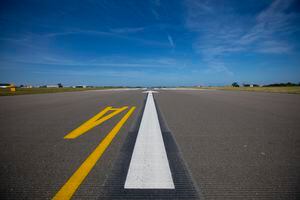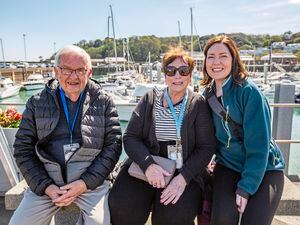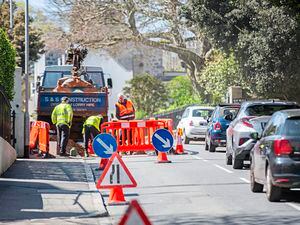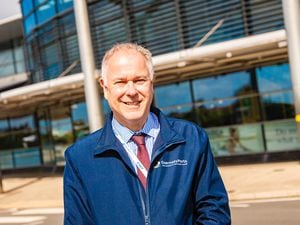Extending airport runway is ‘not a priority' for government
EXTENDING the airport runway is not a priority for government at the moment, the politician controlling the island’s finances said yesterday.

Deputy Mark Helyar was one of the panellists at the Institute of Directors’ business breakfast, focusing on the future of Guernsey’s air links.
He said that he understood that at its basic level, an extended runway offered the island options, including environmental considerations.
‘Options are very important for a jurisdiction like this. But to me the question that I have to be aware of is – can we afford it? And at the moment, the answer to that is probably no,’ he said.
‘We have to look at the economic case, and if that stacks up, we would look at investing, but things are very tight at the moment concerning government expenditure, and it is not a priority. It hasn’t been prioritised in the government work plan.’
Deputy Helyar said he had not yet seen the most recent updated reports on a runway extension and without it, as a decision-maker, it would be wrong for him to express a personal view on its viability.
Paul Hodgson, chairman of the Guernsey International Business Association, the finance industry representative body, agreed that the runway was not a current priority.
‘When we were here at the IoD breakfast a month ago, talking about the housing emergency, that was certainly top from a business perspective. A runway extension is not a priority.’
The benefits for tourism from a longer runway were not necessarily sustainable given the state of the island’s sector, he said.
‘To take advantage of a bigger tourist flow backwards and forwards there would need to be a substantial degree of private sector investment. And at the moment I’m not sure I really understand the clarity of Guernsey’s tourist offering, let alone that someone would back it with substantial investment.
‘We could get benefits in the long term, but at this point in time there are much higher priorities from a business perspective.’
Nico Bezuidenhout, CEO of Aurigny, was previously a CEO of a low cost carrier and he sounded a warning about the sector.
‘Firstly, the mere extension of the runway doesn’t guarantee the entry of a low cost carrier.
‘Secondly, the presence of a low cost carrier does not guarantee a reduction of fares. Low cost carriers will only come if they are offered subsidies.’
However, former pilot and independent aviation expert Jerry Girard said that he passionately believed that Guernsey needed to extend its runway to not only guarantee, but to safeguard its future.
He said that low fares resulted from economies of scale, which would happen if larger aircraft were being flown.
He believed that low fares would stimulate the demand for both inbound and outbound travel, and it would be a powerful economic enabler, stimulating business and tourism activity.
‘People say that if it stimulates more demand, where tourists will stay?’ he said. ‘People will invest in the infrastructure of the island by opening new hotels and restaurants.’





